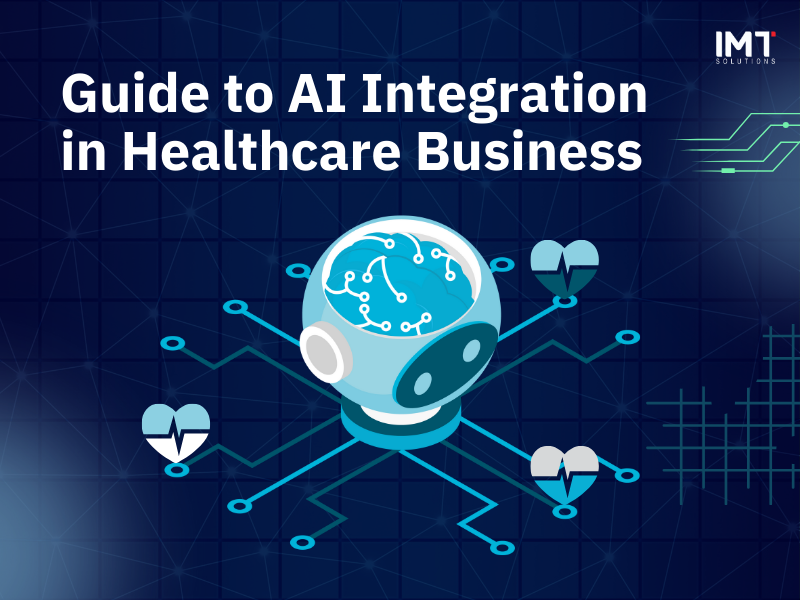Benefits of Digital Transformation for Businesses and Employees
In an era of rapidly advancing technology, digital transformation has become an inevitable and indispensable trend for businesses and organizations worldwide. Digital transformation is not merely about adopting new technologies; it is a comprehensive process of changing how organizations operate, manage, and interact with customers. Leveraging advanced technologies such as the Internet of Things (IoT), cloud computing,… has helped businesses improve efficiency, enhance competitiveness, and create new values. Now, let’s delve deeper into the benefits of digital transformation brings.
Why is Digital Transformation Important?
Enhancing Operational Efficiency
Digital transformation helps businesses automate processes and minimize errors, thereby enhancing operational efficiency. Tools such as ERP (Enterprise Resource Planning) and RPA (Robotic Process Automation) optimize business processes, reduce processing time, and increase accuracy.
For example, an ERP system integrates various functions such as finance, human resources, and supply chain into a single system, providing real-time data and detailed information. This enables quick and accurate decision-making. RPA can automate repetitive tasks such as data entry and customer responses, freeing up human resources for more strategic work. You can learn how RPA helps optimize repetitive tasks in this article.
Improving Customer Experience
Businesses provide better customer service through online channels, chatbots, and other support tools thanks to the benefits of digital transformation. Customers can interact with businesses anytime and anywhere, receiving fast and personalized service.
Therefore, e-commerce platforms use AI technology to recommend products based on customer shopping behavior, creating a more enjoyable and convenient shopping experience. Additionally, a CRM (Customer Relationship Management) system can track customer interactions and preferences, helping businesses tailor messages and offers, fostering customer loyalty.

Creating New Business Models
The benefits of digital transformation open up numerous opportunities to create new business models, from developing online services to exploiting new sales channels. Traditional companies can expand into e-commerce or offer digital-based services to reach more customers.
You can observe this from your surroundings, such as a traditional retail store setting up an e-commerce website to offer products online and reach customers beyond the local area. Moreover, subscription services and digital marketplaces are new business models that have attracted interest, providing recurring revenue streams and expanding market reach.
Enhancing Competitiveness
In an increasingly competitive market, benefits of digital transformation helps businesses quickly adapt to changes and new trends. Data analytics and forecasting tools enable companies to make timely and accurate strategic decisions, thereby enhancing their market competitiveness.
For example, predictive analytics can identify emerging market trends and new customer needs, allowing businesses to proactively adjust their products and marketing strategies. Additionally, digital marketing tools can specifically target customer segments with personalized content, increasing engagement and conversion rates.

Increasing Flexibility and Innovation
Digital transformation facilitates innovation and flexibility in implementing business strategies. Technologies like cloud computing allow businesses to easily scale operations and adapt to changing market demands. This helps businesses maintain competitiveness and achieve sustainable long-term growth.
Read How to start the digital transformation process?
For example about benefits of digital transformation, cloud-based infrastructure can support remote work and collaboration, enabling businesses to tap into global talent pools and respond quickly to new opportunities. Furthermore, agile development practices, supported by digital tools, foster a culture of continuous improvement and responsiveness, driving innovation and efficiency.
Improving Decision-Making with Data Insights
One of the significant benefits of digital transformation is the ability to leverage big data and advanced analytics. Businesses can gather vast amounts of data from various sources, including customer interactions, market trends, and operational metrics. Advanced analytics tools can process this data to uncover valuable insights, guiding strategic decisions and optimizing performance.
Digital transformation is applied in predictive maintenance in manufacturing. It helps minimize downtime and extend equipment life by analyzing data from sensors and identifying potential issues before they become critical.

The Benefits of Digital Transformation for Businesses
Digital transformation is not just a trend but a critical factor for businesses to survive and thrive in the era of Industry 4.0. By adopting digital transformation, companies not only improve their current operations but also lay the groundwork for future success. Let’s explore the benefits of digital transformation for businesses.
Reducing Processing Time
One of the key benefits of digital transformation is the reduction in processing time due to the automation of business processes, from data management to transaction handling. Tools like ERP (Enterprise Resource Planning) and RPA (Robotic Process Automation) minimize work processing time, enhance efficiency, and reduce errors. For example, a manufacturing company using an ERP system can automate warehouse management processes, from ordering materials to inventory management, saving time and minimizing the risk of errors.
Moreover, process automation solutions like RPA perform repetitive tasks automatically, relieving the workload for employees and increasing accuracy. If you want to learn more about services that help optimize operations, visit the specialized AFusion website to enhance your business efficiency.
Improving Customer Experience
Digital transformation allows businesses to provide quick and convenient customer service. Tools like chatbots and AI can support customers 24/7, answering queries and providing timely information. For example, e-commerce sites use chatbots to assist customers in product searches, order processing, and addressing arising issues promptly.
Additionally, it personalizes the customer experience by collecting and analyzing customer data to offer products and services that match each customer’s needs. For instance, Netflix uses user viewing habit data to suggest suitable movies and TV shows, thereby enhancing the user experience and retaining customers longer.

Increasing Competitiveness
Businesses quickly adapt to market changes thanks to the benefits of digital transformation. Data analytics and AI tools help forecast market trends, enabling appropriate business strategies. For instance, retail companies use data analytics tools to predict customer demand during peak seasons, allowing them to adjust production and business plans flexibly.
Furthermore, digital technology improves product and service quality by optimizing production processes and quality control. Manufacturing companies can use IoT (Internet of Things) to monitor and control production processes, detect and rectify errors timely, ensuring high product quality.
コスト削減
Digital transformation helps reduce operational costs through process automation and resource optimization. For example, logistics companies use smart transportation management systems to optimize delivery routes, reducing fuel costs and increasing operational efficiency. Additionally, project and human resource management tools allocate resources effectively, ensuring projects are completed on time and within budget. For instance, tech companies use project management software like Jira to manage progress and assign tasks to development teams, ensuring efficiency and cost savings.
Digital transformation brings significant benefits to businesses. Effective application of digital technology will not only help businesses survive but also thrive in the era of Industry 4.0. However, it’s not only businesses that benefits of digital transformation, but workers also receive substantial benefits. So what benefits do workers receive?

The Benefits of Digital Transformation for Workers
As mentioned above, digital transformation not only brings significant benefits to businesses but also creates many opportunities and improves the working environment for employees. So, what benefits of digital transformation do workers receive?
Enhancing Skills and Knowledge
Digital transformation facilitates employees’ access to training and skill development programs through online learning platforms. Online courses on platforms like Coursera, Udemy, and LinkedIn Learning offer a wide range of courses in technology skills, project management, digital marketing, and many other fields.
Additionally, digital technology allows employees to work remotely effectively through tools like Zoom, Microsoft Teams, and Slack. In the context of the COVID-19 pandemic, many businesses had to switch to remote work. Employees could attend meetings, collaborate with colleagues, and manage work remotely without being physically present in the office. Thus, the benefits of digital transformation are indeed essential.
Increasing Job Satisfaction
Digital transformation creates a flexible working environment, allowing employees to work from anywhere and at any time. Employees can easily adjust their work schedules to fit their personal lives and work, reducing stress and increasing job satisfaction. For example, marketing employees can work from a coffee shop or their own home while maintaining high work performance thanks to online work management tools.
Moreover, the ability to work remotely and flexible work schedules help employees easily balance work and personal life. Employees can spend more time with their families, engage in recreational activities, and take care of their health without affecting their work. For instance, an employee can join yoga or exercise classes in the morning and start work in the afternoon, helping maintain better health and work spirit.

Boosting Productivity and Creativity
One of the significant benefits of digital transformation is providing many efficient work tools that enhance employees’ productivity and creativity. Tools like Google Workspace, Office 365, and Asana help employees manage their work, collaborate with colleagues, and track project progress easily.
Additionally, employees can easily experiment with new ideas and create innovative products and services thanks to modern technology tools. For example, a graphic design company can use advanced design software like Adobe Creative Cloud to create unique and creative artworks.
Digital transformation is not only an essential need for businesses but also a gateway to numerous opportunities and improvements for workers. By adopting digital tools and platforms, employees can enhance their skills, work more flexibly, and increase their job satisfaction. Overall, the benefits of digital transformation provide not only short-term advantages but also play a crucial role in shaping the future of businesses. To maintain a competitive edge and open up new opportunities in the digital era, you should implement digital transformation now.








